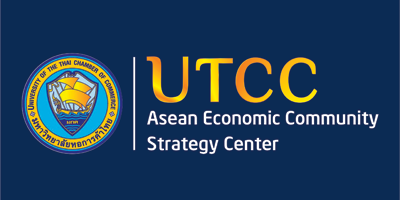Thailand: Consumer prices drop again
Consumer prices, which gauge the country’s inflation rate, dipped for a second straight month in June, mainly due to lower oil prices and baht gains. The drop led the government to cut its inflation forecast yesterday to 0.7-1.7% this year from a previous projection of 1.5 -2.2%.
According to the Commerce Ministry’s data, the consumer price index (CPI), based on 422 products and services, fell 0.05% in June from a year earlier, after a 0.04% decline in May. But on the monthly basis, the rate rose 0.02% from May due to hikes in oil and fresh vegetable prices.
Core inflation, which excludes fresh food and energy products, edged up 0.45% year-on-year and reflected a 0.08% increase from May.
For the first six months of the year, headline inflation rose 0.67% on an annual basis, with core inflation up 0.56% from the same period last year.
Pimchanok Vonkorpon, director-general of the Commerce Ministry’s Trade Policy and Strategy Office, said the inflation rate was expected to accelerate in the second half of the year, thanks to the government’s investment stimuli and higher oil prices.
Nonetheless, the ministry cut its inflation target to 0.7-1.7% this year from the previous projection of 1.5 -2.2% based on lower Dubai oil prices, which averaged at US$45-50 per barrel from $50-60 per barrel at the time of the previous forecast, and a stronger baht, now trading at around 34-36 per US dollar compared to 35.5-37.5 baht when the previous projection was issued.
The Commerce Ministry also insists that the drop in inflation was not a major concern, as the prices over the last two months were comparable to a relatively higher base in the same period last year when the prices of fresh vegetables and fruits surged following a widespread drought. Ms Pimchanok said the ministry was also monitoring the impact of the stringent new labour laws, which may hit domestic manufacturers hard by leading to higher production costs.
Thanavath Phonvichai, vice-president for research at the University of the Thai Chamber of Commerce, said the inflation rate, which contracted for the second straight month in June, indicated a mild economic recovery was under way but also signalled a slowdown, with domestic purchasing power remaining weak.
More importantly, the prices of certain key farm products, such as rubber and tapioca, had fallen over the last 2-3 months, leading to lower incomes for farmers.
Tisco Securities said it believes disinflation is already over for both headline and core CPI, as inflationary pressure should pick up on both the supply and demand sides in the second half. It expects headline consumer prices to turn positive in July.
According to Tisco, weak inflationary pressure continues to keep real interest rate elevated at +0.9% year-on-year, compared with an average of +0.1% since the adoption of inflation targeting in 2000 (real interest rate is calculated by subtracting 12-month-moving-average headline consumer price index from the policy rate). It also does not expect the Bank of Thailand to tighten its monetary policy stance in the immediate future.
Source: http://www.bangkokpost.com/business/news/1280531/consumer-prices-drop-again


 Thailand
Thailand




